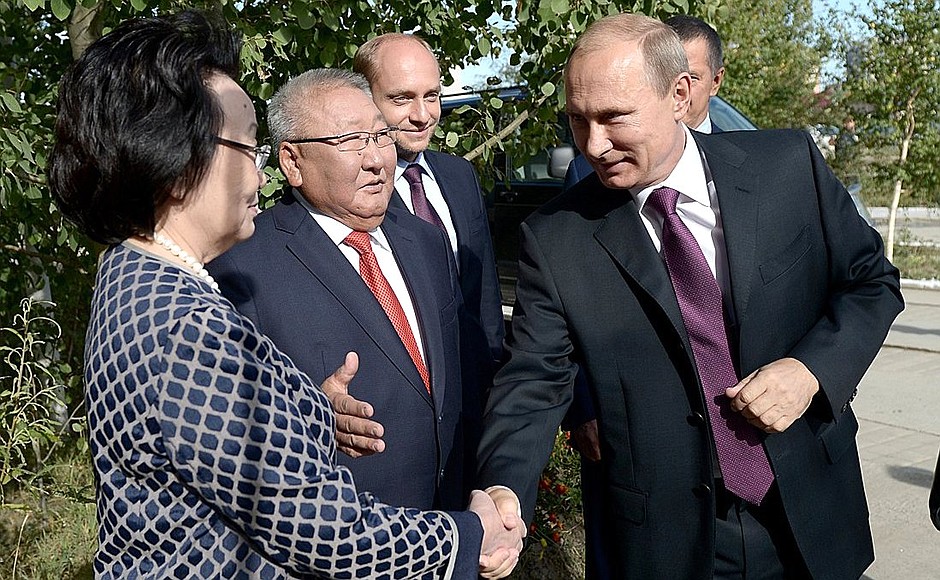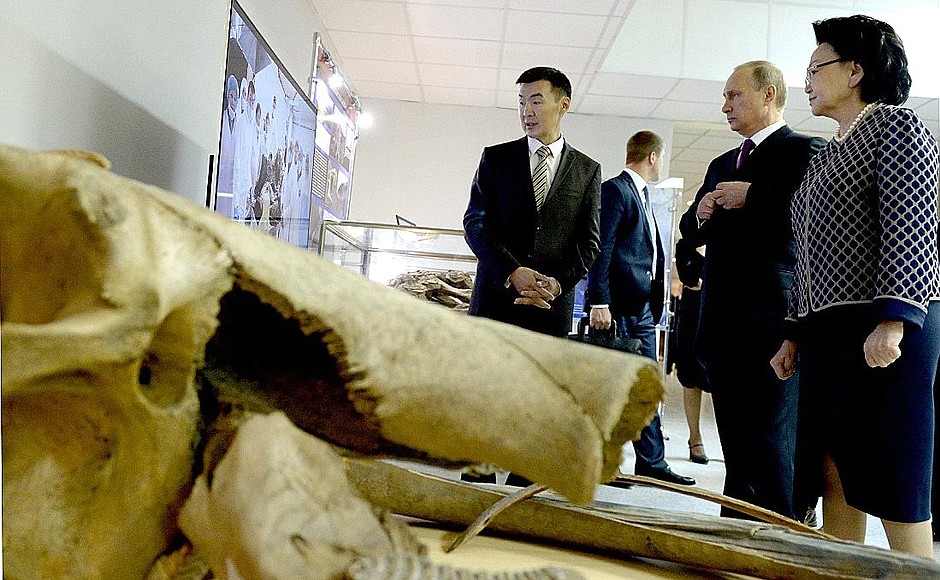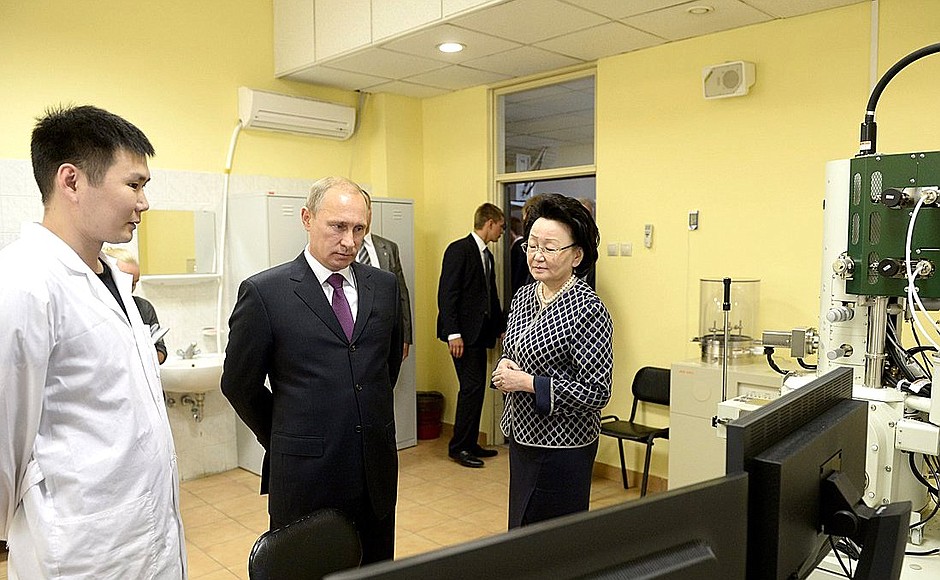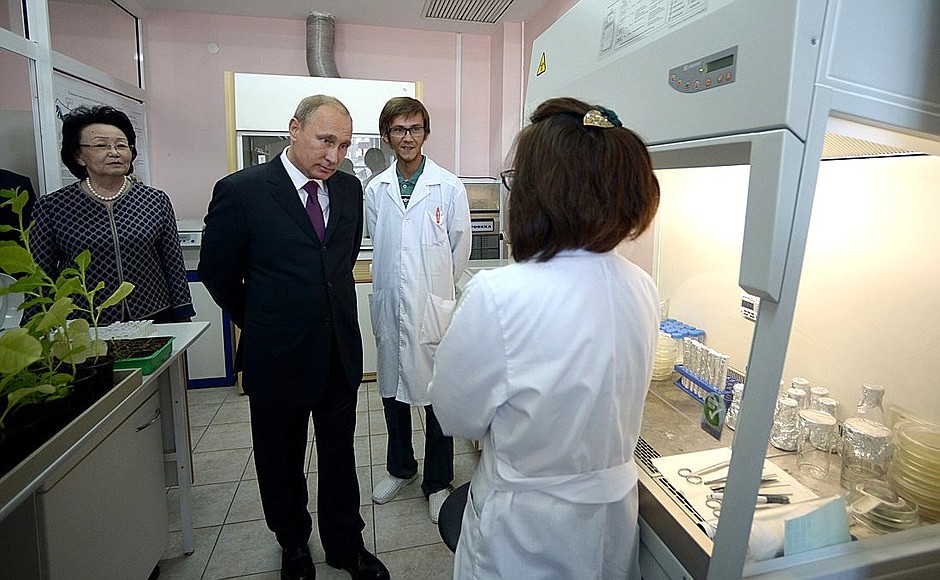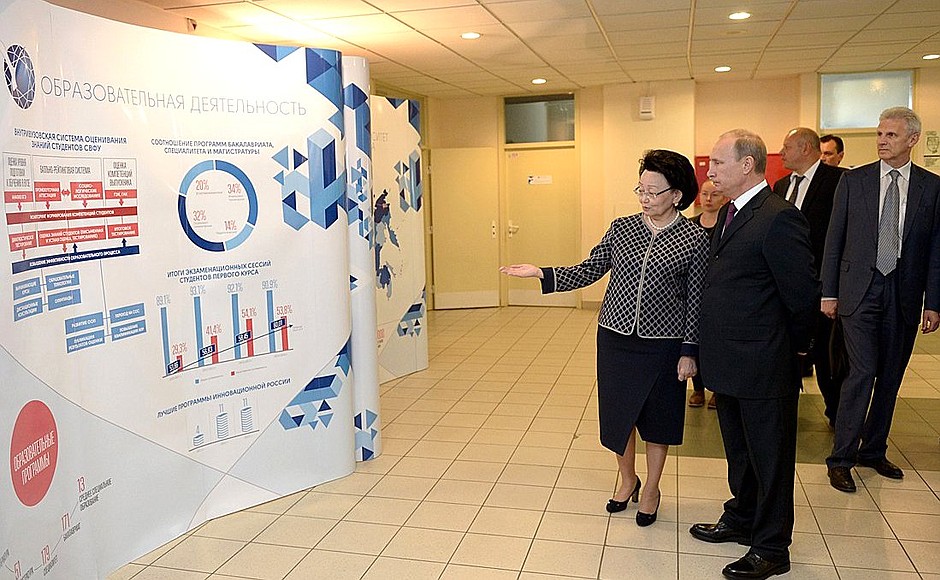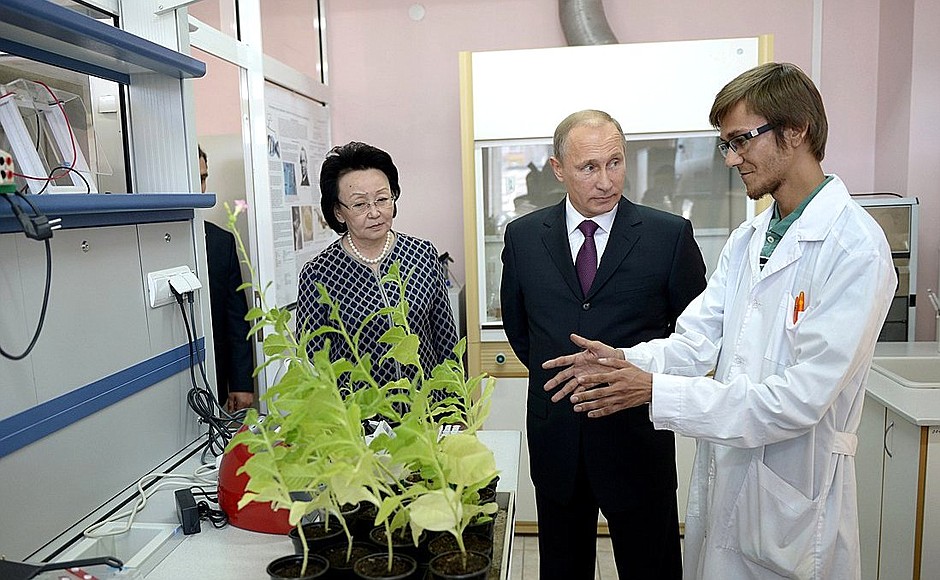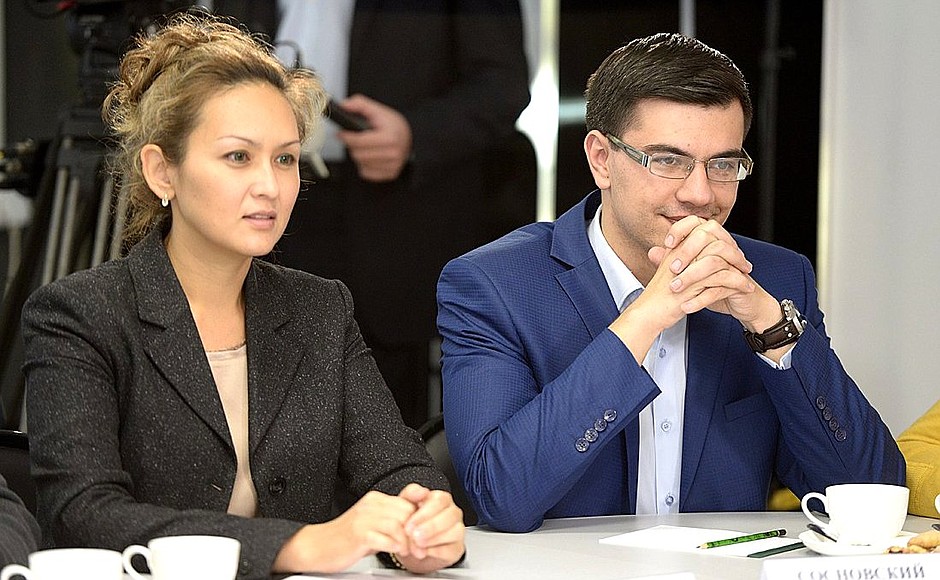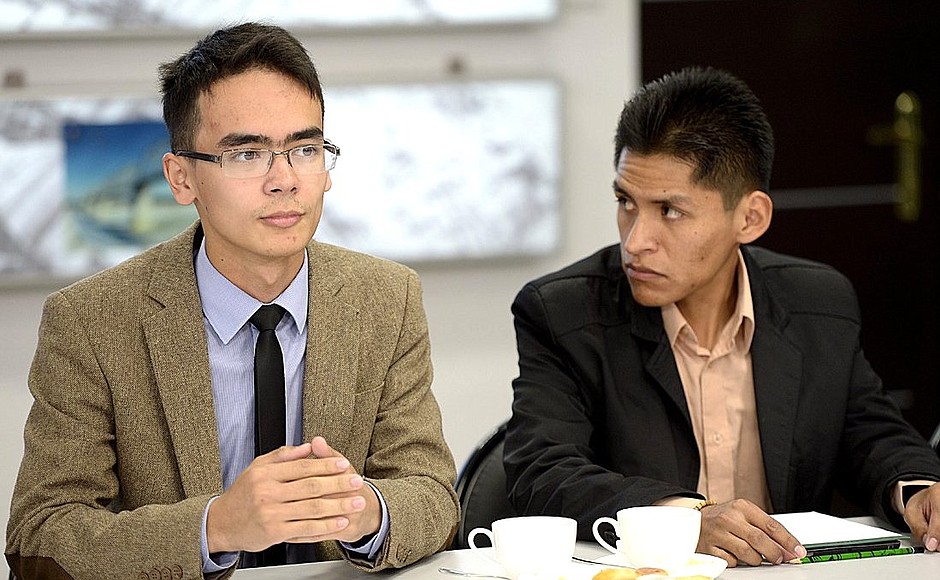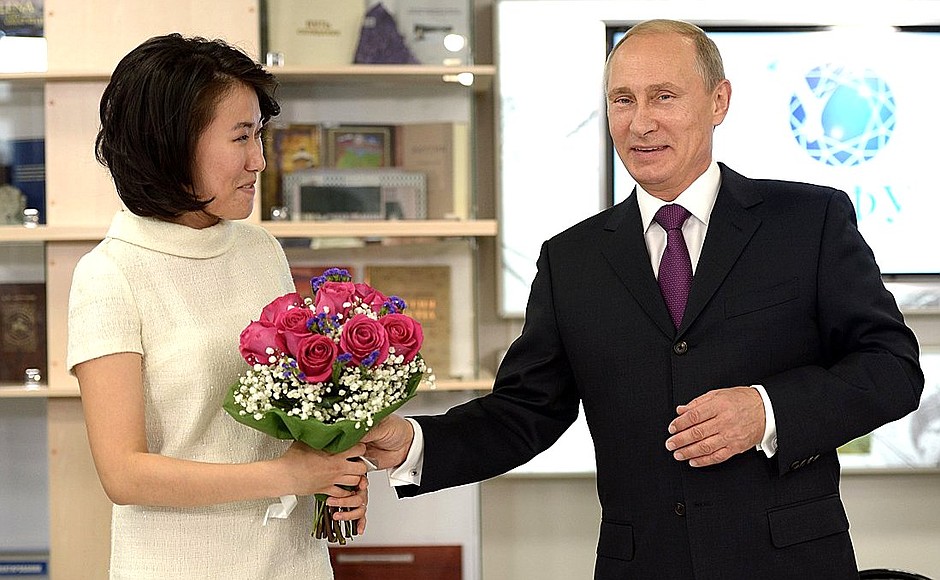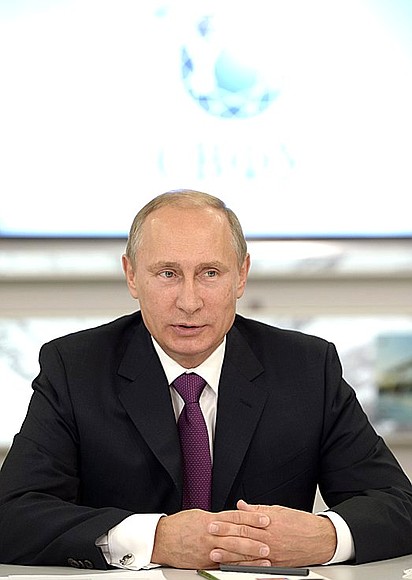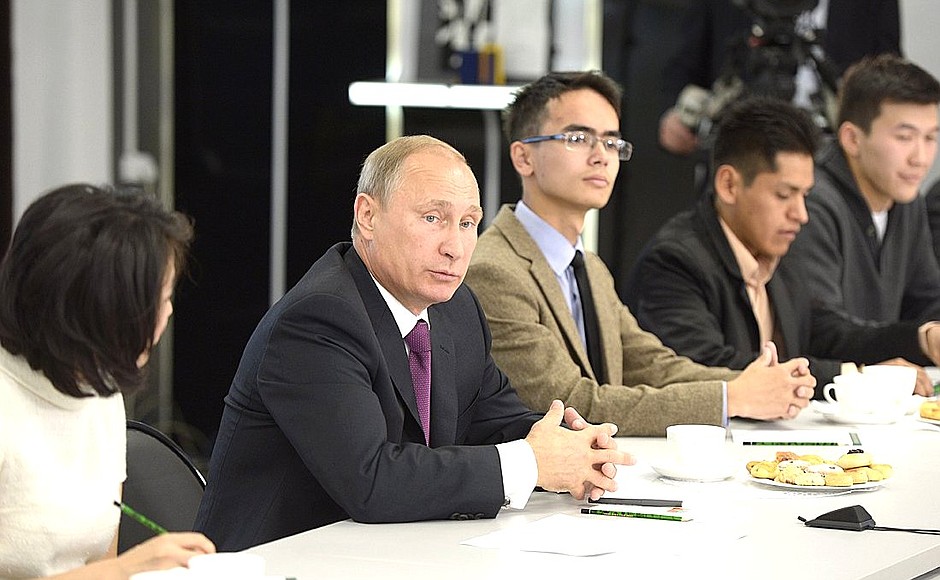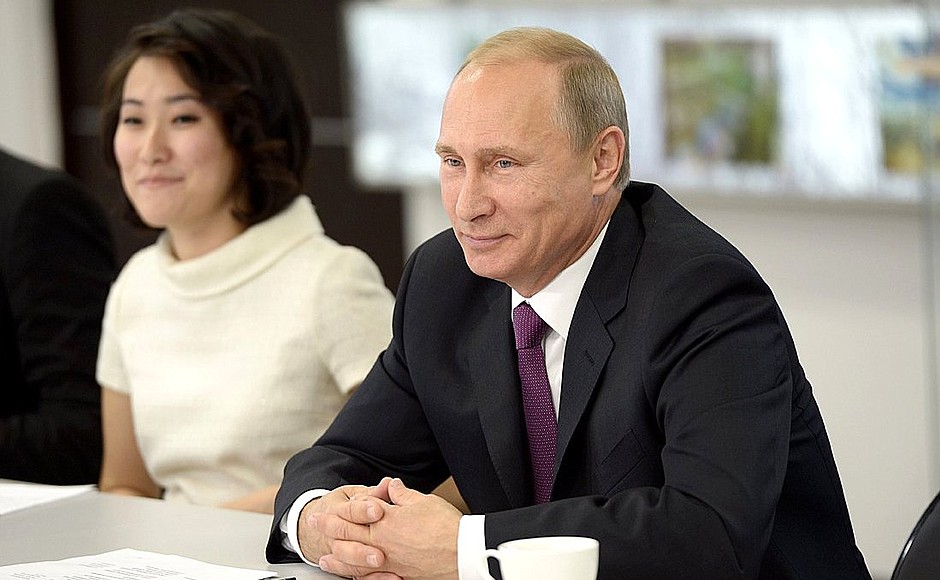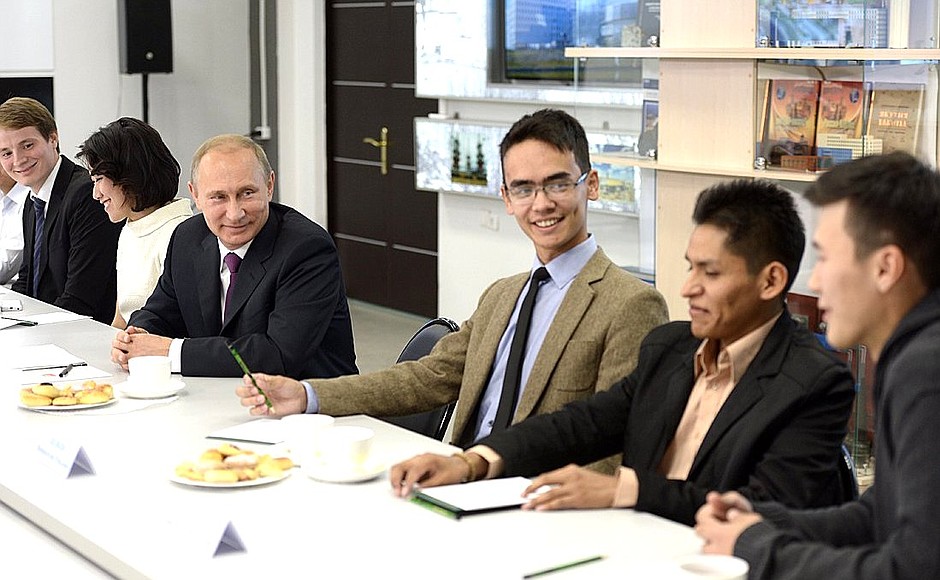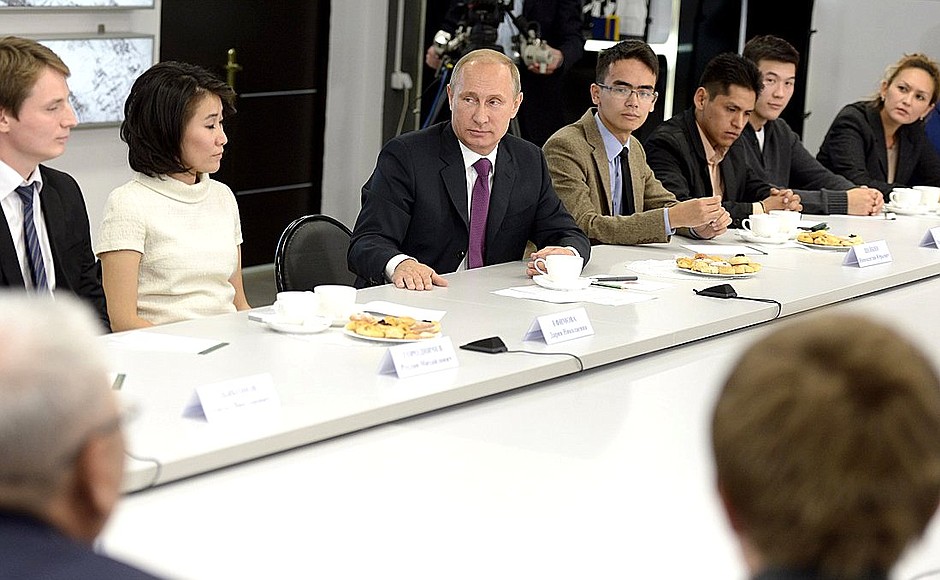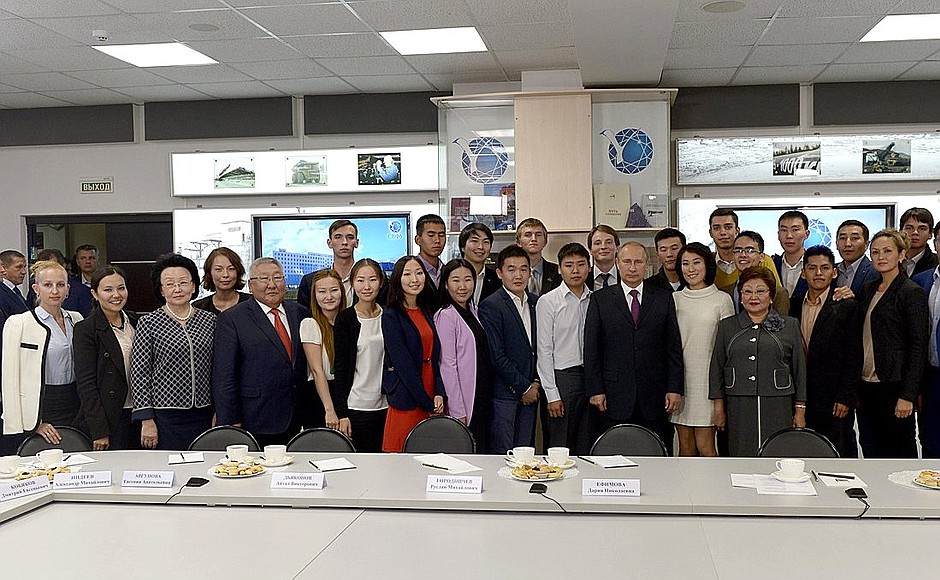Before meeting with faculty members and students, the President learned about the university’s activities and toured a molecular genetics laboratory.
* * *
President of Russia Vladimir Putin: Good afternoon, everyone.
I want to congratulate everyone here and students of every level at universities and schools all around the country and their teachers on the start of the new academic year.
We have this excellent tradition of celebrating the new school year as a holiday for the whole country. This is a positive and useful tradition because it underscores yet again the importance education has for us and for today’s world. I have said this many times, but let me say it again now: education, like healthcare, is one of the most effective instruments for economic development in the modern world, and this is the case in Russia too.
It has been a long time since I last visited Yakutsk, and I am happy to see that the city is developing and growing, despite its harsh climate. This development is visible. You perhaps do not see it as clearly because you live here and the change is gradual, but for me it made a pleasant surprise. New districts have emerged, even though the environment and low temperatures make construction here a difficult job.
Of course, the people here are very hardy and obviously used to the environment. I remember one of my first visits, when people came up to greet me in the street and there were these two guys dressed in suits, not even wearing jackets, at minus 50. I nearly fell over at the sight when I got off the bus. I asked them, “What are you doing here?” They said, “We’ve come to greet you”, and I said, “Look, let’s get inside quickly.” People like this can achieve a lot, and your republic is developing in general, the education sector too.
Your university fills a whole small district. New buildings have been added over these last few years, and you have a good development programme. 20,000 students is a good figure as far as student numbers go, and the quality of education and training that your teachers offer is of the highest standard. You have many faculty members from abroad, and many from elsewhere in Russia who come on short-term contracts, but you have many who work here on a permanent basis too. You have students from 37 different Russian regions studying here, and from 30 foreign countries. The university’s number of publications is increasing, and other indicators are on the rise too.
I was very happy to hear what Ms Mikhailova [Rector of NEFU] told us today about the work of small innovative businesses. I am happy for your successes in this area. Starting out with 4 million rubles and taking it to 150 million rubles in just three or four years is a very good result indeed. Obviously, we were right to take the relevant decision, including at the legislative level. It was not for nothing that we debated and argued when some of our colleagues said that we should not give universities the right to set up these kinds of small innovative businesses or get involved in business activity at all, since their main objective is to provide education and they should not get distracted from that task. But I think that we took the right decision. This is not simply about giving universities and the people taking part in these programmes the chance to boost their incomes. If the business activity is linked to innovative work and tied to the learning process then it is also a very good way of gaining additional skills and knowledge.
It makes me very happy to see that big business is also starting to work with the university. We mentioned ALROSA earlier. Joint work with this company on environmental protection is very important. Today we are launching a big investment project, Power of Siberia, we have called it. It is a new gas pipeline that will not just increase our export supplies and broaden the geography of our gas export markets, but will also be a big step forward in getting our own country entirely connected to the gas network. This is particularly important in the eastern part of our country, in eastern Siberia and the Far East.
The next step will offer even greater opportunities in economic terms. Once we have developed and expanded the gas pipeline network here in eastern Siberia and the Far East, we will be able to join the European part of the gas transport system to the eastern part. This offers huge advantages in terms of export opportunities and expanding the gas network in our own country because it makes it possible to ensure supplies and flows no matter what the situation in the global world markets, so that we can work wherever is more effective – in the east or in the west.
This is important for you too because projects such as this require large numbers of highly qualified specialists. Preliminary estimates suggest that we will need at least 3,000 people.
I know that Gazprom has already signed an agreement in this area with the university and I think that this is just the start because this is a big project that will take place over a long timeframe. It will create new opportunities in other sectors too.
I would like to give you the floor, listen to you and discuss your current concerns and future prospects. Perhaps you have some ideas and proposals for improving the education system, not just here at your university, but more generally based on the experience you have gained during your studies. The floor is yours.
Once more, I congratulate you on the start of the new academic year.
<…>
